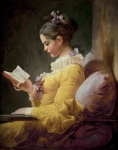Evelyn Smith
The American Library Association periodically releases a list of the most challenged books in libraries in the United States reported to the ALA's Office for Intellectual Freedom. The following list from the ALA’s Association’s Office for Intellectual Freedom gives the 100 most challenged books the years 1990-2000. Most adults and college students should recognize some titles that have made a required reading list.
American
Library Association. (2013). frequently challenged books. Banned & Challenged Books. Office for Intellectual Freedom of the
American Library Association. Retrieved
from http://www.ala.org/bbooks/frequentlychallengedbooks/classics
Developing Critical Thinking
& Writing Skills
A
free press and freedom of speech require an informed citizenry to develop
critical thinking skills, so individuals can decide for themselves the ideas
they want to embrace and those they want to reject.
 |
| Texas Library Association |
This
Aurora University Web site asks readers to develop their critical thinking
skills as opposed to banning books that individuals disagree with for various
reasons.
Critical
thinking I. (n. d.). Study Guides and
Strategies. Retrieved from http://www.studygs.net/crtthk.htm
This
self-help guide directs readers and listeners to identify what they already
know about a topic, to analyze the opinions and prejudices they already have
about it, and finally to locate resources for future study.
Dogra,
Aastha. (2010, October 14). Critical thinking exercizes. Buzzle.
Retrieved from http://www.buzzle.com/articles/critical-thinking-exercises.html
To
think critically, readers and listeners need to develop critical thinking
skills, so they can tell the difference between fact and opinion and understand
how others might slant a lecture, a television or radio show, or a Web site to
induce an audience to accept only one side of an argument. Applying critical thinking skills allows
individuals to make objective decisions, even though games, puzzles, and brain
teasers can hone reasoning abilities.
Rhetorical
fallacies. (n. d.). Undergraduate
Writing Center. University of Texas—Austin. Retrieved from http://uwc.utexas.edu/handouts/rhetorical-fallacies/
This
University of Texas handout defines the standard list of emotional, ethical,
and logical fallacies that don’t allow for an exchange of ideas.
____________________
Games Sharpen Deductive Reasoning
Skills
- Crossword and jig-saw puzzles
- Riddles
- Suddoku
- Chess, checkers, backgammon, and Battleship
Check to see if your local public library offers children the
opportunity to enhance their reasoning power by playing games.
For Your Bucket List:
Novels with Censorship Themes
Atwood, Margaret. (1986). The Handmaiden. Toronto: McClelland & Stewart.
After a
theocratic dictatorship has overthrown the United States government, a
concubine named Offred, kept by the ruling class as a breeder, tells in a series of
flashbacks about hers loss of autonomy, her failed escape, and her
indoctrination as a handmaiden .
Bradbury,
Ray. (1953). Fahrenheit 451. New York:
Ballantine
In this
mother of all censorship-themed novels, friends and family turn in to the authorities a fireman whose job it is to burn books after he starts
reading confiscated materials.
Hrabal,
Bohumil. (1976). Too Loud a Solitude.
New York: Harcourt.
In this
first-person novel written while Czechoslovakia was part of the Soviet Bloc, a supposed
idiot employed as a “paper crusher” uses his job to collect rare and banished books.
Huxley, Aldous. (1932). Brave New World. London: Chatto & Windus.
Huxley, Aldous. (1932). Brave New World. London: Chatto & Windus.
In 632 A.
F., that’s After Ford, subconscious recordings control the thought processes of a consumer society while they sleep.
Le Guin,
Ursula K. (2000). The Telling. New York: Harcourt.
Since the
state has outlawed all traditional beliefs and practices, resistance takes the
form of storytelling in this dystopian novel.
Zamyatin,
Yergeny. (1924). We. Translated from the
Russian by Gregory Zilbosig. New
York: E. P. Dutton.
Translated
from a Russian edition, the novel We tells the tale of D-503 who lives in a country
where the buildings are constructed entirely of glass, "The Tablet" monitors every aspect of life, and
secret police and spies keep close watch over all citizens.

No comments:
Post a Comment